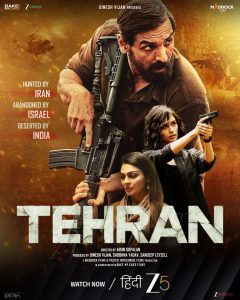Considering political and religious fear is the dominant emotion in the film, and it is not tough to draw a parallel with the going-on in the Northeast, the director while refusing to comment on the political side of things, stresses that through this film he wanted people to take a ‘pause’ and look at everything rationally and with a clear mind…reports Asian Lite News
As a little boy, studying in a school in mist-kissed Meghalaya, he wrote behind his chair in the classroom — ‘director’.
That is how it started.
Filmmaker Dominic Megam Sangma’s Garo language film ‘Rapture’, which won the Cultural Diversity Award at the 16th Asia Pacific Screen Awards and premiered at the prestigious Locarno Film Festival is all set to be screened at the Indian Film Festival of Los Angele 2023 (IFFLA).
The movie, which takes audiences on a journey into the heart of Meghalaya’s Garo Hills, exploring the intricate interplay between gullibility and tolerance within a rural village is part of a trilogy based on his memories in his village. ‘Rapture’ is the second after ‘Ma. Ama’ made five years ago.
“While Ma. Ama was based on my family, the second one deals with the memories of the people and the village. There is a bit of fiction too. Growing up in the village, some fears have stayed on… In the Northeast, several instances have happened owing to misunderstandings due to the language barriers — fear of strangers, child kidnappers etc. And let us not forget, the Church would preach things like there would be darkness for 40 days and 40 nights, etc. As a child, you may not completely understand many things going on but they did precipitate a certain trauma — and I need to deal with them through my craft,” he tells.
Sangma’s grandfather was an oral storyteller. Garo does not have a script and uses English. He recalls that his initiation started quite early. “You can say I have a background in storytelling. Not to mention, I also wanted to write a book when I was young. Frankly, I got to know about film schools very late in life,” says this pass-out from Satyajit Ray Film and Television Institute (Kolkata).
Please that his film is set for a screening at IFFLA, he adds: “This is something really big as there are not many Garo filmmakers. It is an honour for the whole community to get the film here.”
Considering political and religious fear is the dominant emotion in the film, and it is not tough to draw a parallel with the going-on in the Northeast, the director while refusing to comment on the political side of things, stresses that through this film he wanted people to take a ‘pause’ and look at everything rationally and with a clear mind.
“It is paramount to take an unbiased overview and not let fear control us. In ‘Rapture’, everybody exists — the ones who take that pause, and those who let fear rule them. There are multiple questions that I wish to raise — who creates fear and what are we afraid of? It is important to understand that nothing is absolute.
“Who creates this fear? What are we afraid of? I want to create doubt in their belief system that nothing is absolute – one of the factors that divide us nowadays is our belief system, it can be anything, religion, ideologies, political inclination etc,” Sangma adds.
Interestingly, ‘Rapture’ is an Indo-Chinese joint production. The film’s producer Xu Jianshang says: “His works have immense depth. We may have cultural differences but it is a pleasure working together.”
For someone who once wanted to move to Mumbai and make commercially viable cinema, staying back in his village has been the “wisest thing” to have happened to him. “When I started watching the ‘other’ cinema, there was a complete metamorphosis when it came to looking at life through my craft. I find so many important stories in my village and take the community along,” Sangma asserts.
While funding continues to be a major problem for independent filmmakers, Sangma stresses that it is important in one’s story. “You cannot lose courage in your story and change the script every time you send it to someone.”
Lamenting that OTT platforms are no longer the kind of interest they showed earlier in independent cinema, the director adds: “Believe me, some senior executives of leading OTT platforms have asked me about a major festival — ‘Is that a big festival’? Now if they do not even know about important festivals, how do you sell them a film?”
ALSO READ-








